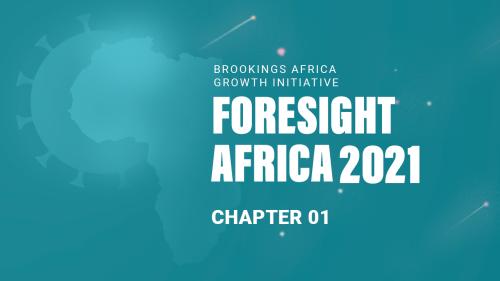Below is a viewpoint from Chapter 4 of the Foresight Africa 2017 report, which explores six overarching themes that provide opportunities for Africa to overcome its obstacles and spur inclusive growth. Read the full chapter on bolstering urbanization efforts here.
 Adequately housing Africa’s growing and urbanizing population is an increasing challenge for policymakers and the private sector: According to a recent study by McKinsey,[1] by 2025 over 35 million housing units will be needed in Nigeria, Egypt, and South Africa alone, and over 90 percent of Africa’s young population will live in urban areas. In 2017, policymakers should begin to focus on how to successfully prepare for this growing need.
Adequately housing Africa’s growing and urbanizing population is an increasing challenge for policymakers and the private sector: According to a recent study by McKinsey,[1] by 2025 over 35 million housing units will be needed in Nigeria, Egypt, and South Africa alone, and over 90 percent of Africa’s young population will live in urban areas. In 2017, policymakers should begin to focus on how to successfully prepare for this growing need.
Addressing the housing challenge is critical for growth. The real estate sector has underpinned economic recovery in many developed countries and can help Africa weather its continued slow growth by generating domestic demand, creating jobs, and increasing wealth. However, following the 2008 financial crisis there has been a latent aversion to housing finance systems. Mortgage systems are under scrutiny, and the debate around adequate regulatory structures and appropriateness of instruments to whom and in what markets persists. Meanwhile, incomes are indeed rising on the continent, but most citizens cannot afford to independently finance mortgages. On the private sector front, mortgage markets are shallow and the perception of credit risks in the sector remains high.
Some public programs, concessional financing, and a much improved regulatory environment are crucial to attract more private financing needed to support government’s ability to keep pace with the demand. In 2017, then, policymakers must consider several important steps.
First, governments, working with the private sector, must develop and adopt an adequate legal and regulatory framework for housing finance. Fundamental to which is reducing financing risks to all parties, which requires first and foremost strengthening the land titling systems and enforcing property rights to ensure robustness of security and collateral. At the same time, a robust housing finance system relies on availability of good credit information. Accordingly, governments should accelerate the development of credit information bureaus. Finally, there must be clarity regarding the role of all institutions engaged in housing finance, private banks, micro-finance institutions, pension funds, insurance companies, and others in order to ensure all systemic risks are managed.
Second, the financing role of the government must be clearly defined and should support market creation. A stable and predictable agreement on the division of risks and financing between the public and private sector must be reached, allowing for the possibility of providing blended financing to accelerate housing development. The public sector can guarantee demand-related risks by underwriting, for example, payment of housing units. Similarly, the private sector can assume all costs and quality related risks.
Finally, capital markets development must be accelerated to provide instruments needed to support the development of housing finance. There is an increasing need for local currency long-term financing and development of secondary mortgage finance markets. These markets can help smooth default and financing risks and provide banks with an outlet to trade housing loans in order to adequately manage exposure to the housing sector. With a more developed housing finance market, financial institutions can begin offering longer-term financing, which will also support demand.
[1] McKinsey Global Institute. Lions on the move II: Realizing the potential of Africa’s economies. September 2016. Available at: http://www.mckinsey.com/global-themes/middle-east-and-africa/lions-on-the-move-realizing-the-potential-of-africas-economies.






Commentary
Foresight Africa viewpoint: Housing Africa
January 23, 2017